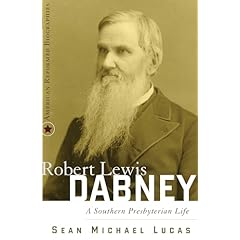The Hebrew word for gluttony is only used 10 times in the Old Testament, with only four of them being translated as "gluttony"; there is only one reference to gluttony in the New Testament (Titus 1:12). Here's what I've been able to piece together from my word study:
"Gluttony" (Hebrew, zalal) begins its etymological life as a verb meaning "to be light, worthless, to make light of, to squander." From there, it turned into its noun forms "worthlessness" and "insignificant." Jeremiah uses this word in Jer. 15:19 to encourage us to utter what is precious rather than worthless (zalel). The tricky thing, though, is that the main idea of the verb is "to make little of" while we often think of gluttony the opposite way: "to make much of; squanderous excess." Squanderous excess is not a bad definition of gluttony, but the spiritual truth behind gluttony is, I think, starting to come out. We are gluttonous when we make way too much of a thing - whether food or drink or luxury or music or relationships, etc. - but in our pursuit of something which ought not to be pursued as an end in itself, we end up emptying it of all its divinely-ordained potential.
To put it another way: meat & drink are blessings from God. But when good food and drink is pursued as an end in itself, we empty those blessings of their blessing, thus making little of something by making much of it. When used from a heart centered on the Living God, meat and drink are a blessing. When used apart from that mindset, when we pursue the gift instead of the Giver, we have emptied it by trying to get too much from it. We have been gluttons.
Back to my surprise...I went to my books to see what better men have thought about gluttony, only to find they haven't. I did a search through my electronic books in Logos to see what I could find there. Barely a mention in a topical textbook. [Ed. note: I'm assuming that the Puritans wrote quite a bit on gluttony, just as they did on everything else, but they have yet to publish the definitive Puritan index. Or I haven't found it yet.]
Alas, who would help me? To the rescue came (superhero theme music here) John Calvin. I've got to remember to start checking with him first rather than last. In his discussion on the abuse of Christian liberty (3:19:9), he has instructed me well:
There is almost no one whose resources permit him to be extravagant who does not delight in lavish and ostentatious banquets, bodily apparel, and domestic architecture; who does not wish to outstrip his neighbors in all sorts of elegance; who does not wonderfully flatter himself in his opulence. And all these things are defended under the pretext of Christian freedom. They say that these are things indifferent. I admit it, provided they are used indifferently. But when they are coveted too greedily, when they are proudly boasted of, when they are lavishly squandered, things that were of themselves otherwise lawful are certainly defiled by these vices.
...Surely ivory and gold and riches are good creations of God, permitted, indeed appointed, for men's use by God's providence. And we have never been forbidden to laugh, or to be filled, or to join new possessions to old or ancestral ones, or to delight in musical harmony, or to drink wine. True indeed. But where there is plenty, to wallow in delights, to gorge oneself, to intoxicate mind and heart with present pleasures and be always panting after new ones - such are very far removed from a lawful use of God's gift.
Ah yes, the wonderfully bittersweet sting of conviction. One more reason to be thankful for Calvin.





